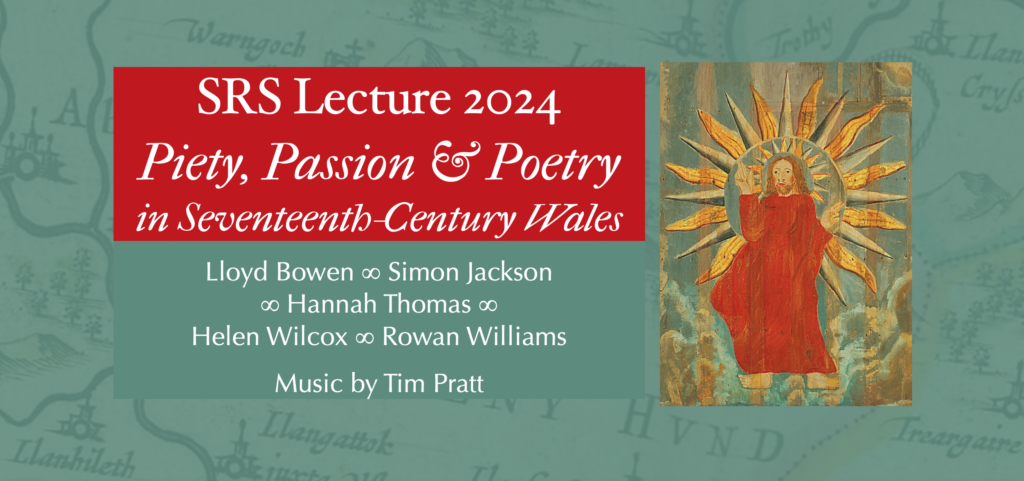SRS Lecture 2024
Lloyd Bowen ∞ Simon Jackson
∞ Hannah Thomas ∞
Helen Wilcox ∞ Rowan Williams
Music by Tim Pratt
Tea and coffee will be served between 1.30 and 4.00 pm; discussion will begin at 2.00pm
The Society for Renaissance Studies’ Lecture 2024 will take the form of a discussion between leading scholars. Addressing religious life in early modern Wales, conversations will focus on the poetry of George Herbert (1593-1633) and Henry Vaughan (1621-1695) and also consider clashes and coexistence between Catholicism and Protestantism.
Some of the most significant devotional poetry of the seventeenth century was written by Anglo Welsh authors. Educated at Llangattock near Crickhowell and Oxford, Henry Vaughan was born into a family that had connections with prominent Catholic and Protestant Welsh families. A poet, translator and writer of devotional prose, Vaughan supported the royalist cause during the civil war but he lived a broadly private life. His poetry was influenced by another Anglo Welsh poet, George Herbert.
In the late seventeenth century, the reception of Herbert’s poetry became entangled with the various political revolutions. Religious and political tensions were factors in the outbreak of civil war in 1642 yet the Protestant Herbert’s religious poetry spanned political and religious divisions. The non-conformist Richard Baxter (1615-1691) observed that Herbert’s most famous collection, The Temple (1633), combined ‘heaven work’ and ‘heart work’. We will ask what gave these intimate and personal poems such a sense of universality and explore how they reached larger and later audiences through being set to (and influencing) music.
Such seemingly universal devotional poetry nevertheless unfolded against a backdrop of religious division in Wales in the wake of ongoing reform. Catholics were treated with suspicion in Protestant England and Wales, where they had restrictions placed on them and risked being sentenced to death. Catholics needed to practice their faith in secret chapels such as the one in the attic of the Gunter Mansion, Abergavenny, and the symbols of religious devotion could be seen in everyday objects found in the home. Yet such secrecy wasn’t always necessary: when Edward Vaughan found himself in dispute over land with his sister-in-law, Dame Katherine, some of the highest courts in the land supported his Catholic opponent – a factor that might have influenced the abolishing of the Court of the Star Chamber in the lead up to civil war. We will consider the ways in which Catholics and Protestants lived alongside each other, exploring how homes and other spaces were used for worship and whether the story of the Reformation in Wales was always one of conflict.
Discussions will range from Anglo Welsh poetry read around the hearth to ‘Catholics in the attic’ and feature a performance of a song cycle based on settings of Vaughan’s poetry. What will be revealed is the often-contradictory ways in which religion, poetry, and even household objects connect to the turbulence of seventeenth-century politics.

